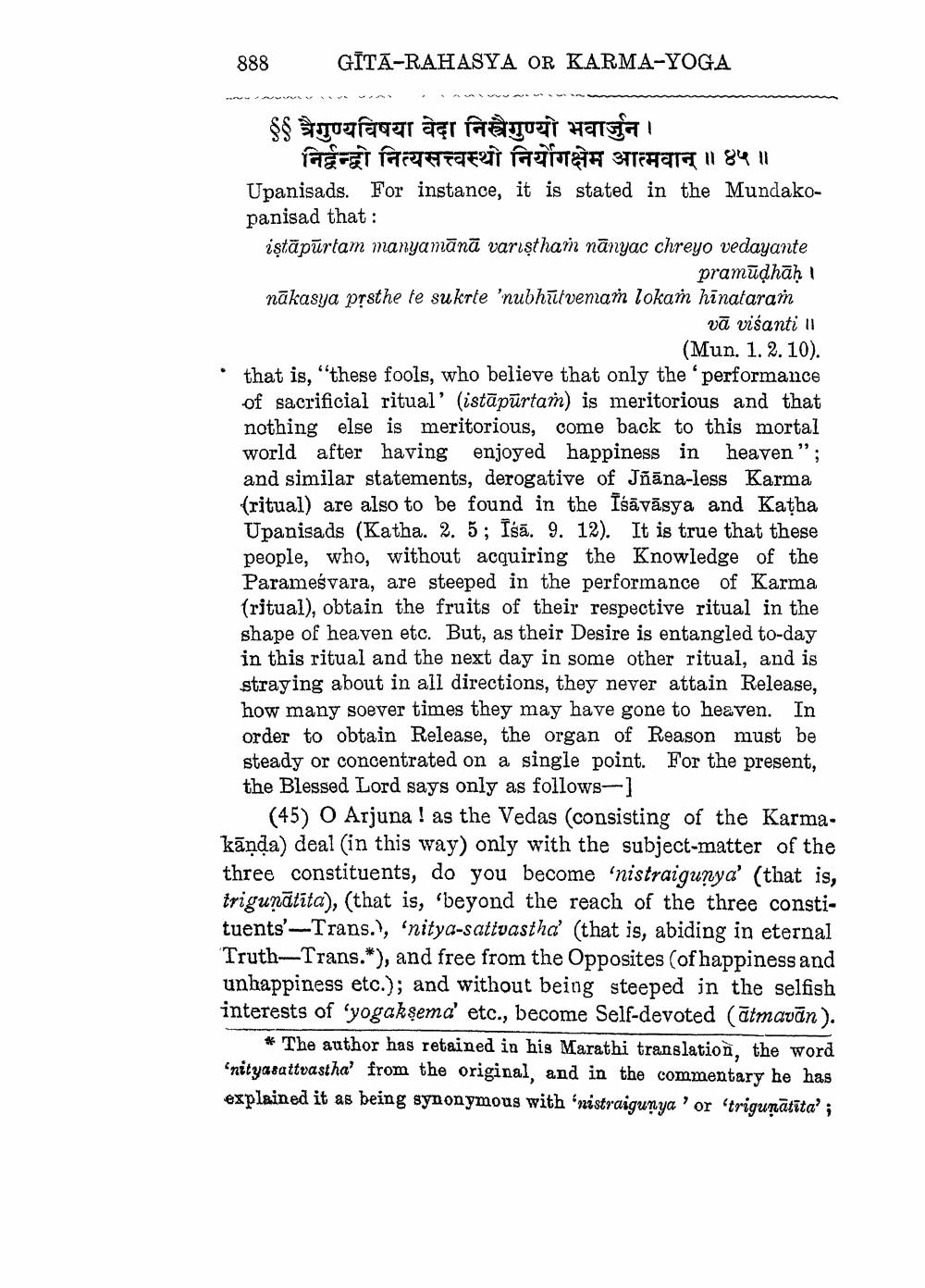________________
888
GITA-RAHASYA OR KARMA-YOGA
६ त्रैगुण्यविषया वेदा निस्वैगुण्यो भवार्जुन ।
निर्द्वन्द्वो नित्यसत्त्वस्थो निर्योगक्षेम आत्मवान् ॥४५॥ Upanisads. For instance, it is stated in the Mundakopanisad that: istāpūrtam manyamānā varıştham nānyac chreyo vedayante
pramūļhāḥ 1 nākasya prsthe te sukrle 'nubhītvenam lokam hinataram
vā visanti 11
(Mun. 1.2.10). that is, these fools, who believe that only the 'performance of sacrificial ritual' istāpūrtam) is meritorious and that nothing else is meritorious, come back to this mortal world after having enjoyed happiness in heaven"; and similar statements, derogative of Jñāna-less Karma (ritual) are also to be found in the Išāvāsya and Katha Upanisads (Katha. 2. 5; Išā. 9. 12). It is true that these people, who, without acquiring the Knowledge of the Parameśvara, are steeped in the performance of Karma (ritual), obtain the fruits of their respective ritual in the shape of heaven etc. But, as their Desire is entangled to-day in this ritual and the next day in some other ritual, and is straying about in all directions, they never attain Release, how many soever times they may have gone to heaven. In order to obtain Release, the organ of Reason must be steady or concentrated on a single point. For the present, the Blessed Lord says only as follows-1
(45) O Arjuna ! as the Vedas (consisting of the Karma. kānda) deal (in this way) only with the subject-matter of the three constituents, do you become "nistraigunya' (that is, trigunatita), (that is, 'beyond the reach of the three constituents'-Trans., nitya-sattvastha' (that is, abiding in eternal Truth-Trans.*), and free from the Opposites (of happiness and unhappiness etc.); and without being steeped in the selfish interests of yogakşemd' etc., become Self-devoted (atmavān).
* The author has retained in his Marathi translation, the word "nityasattvastha' from the original, and in the commentary he has explained it as being synonymous with 'nistraigunya ' or "trigunātīta';




